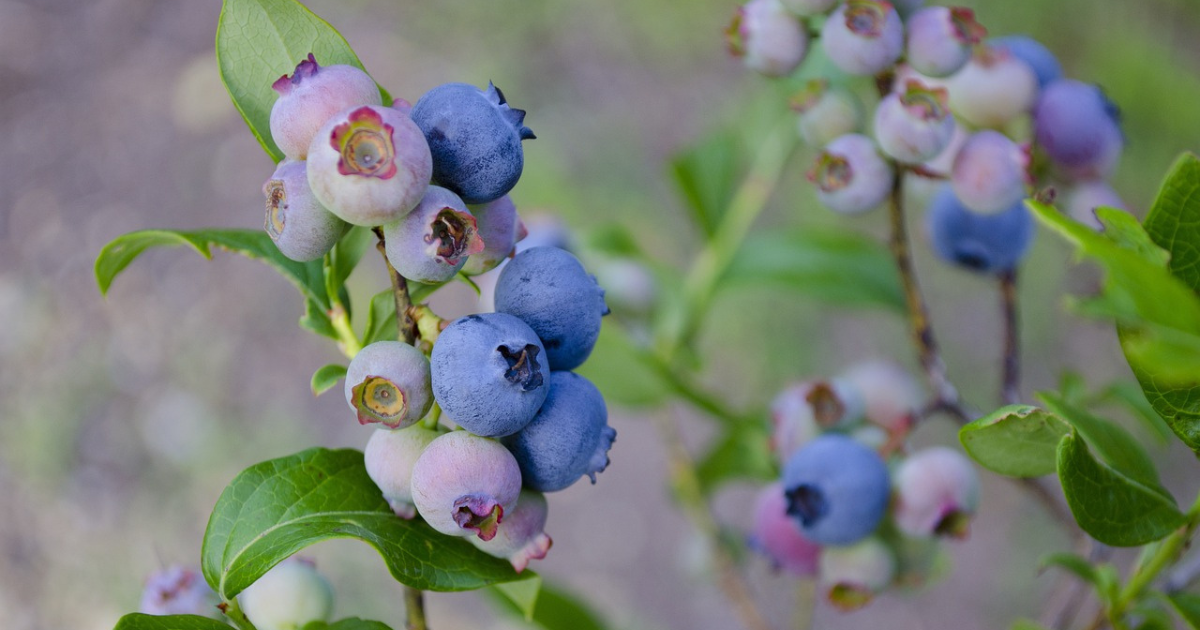Imagine stepping into your garden on a warm summer day. The air is sweet with the aroma of ripe blueberries hanging from lush bushes, waiting to be picked. You’ve poured your heart and soul into nurturing these plants, and the reward is a bounty of delicious, sun-kissed berries. But achieving that vibrant harvest requires more than just sunlight and water—it involves understanding the specific nutrient needs of your blueberries and choosing the right Fertilizer. In this article, you’ll discover how to effectively care for your blueberry plants through the power of Fertilizer, ensuring they thrive and produce fruit year after year.
Table of Contents
The Importance of Fertilizing Blueberries
Why Nutrient Needs Matter
Blueberries are unique in their nutrient requirements. Unlike many other plants, they thrive in acidic soils with a specific pH range (4.5 to 5.5). Understanding their nutrient needs is crucial for several reasons:
- Healthy Growth: Adequate nutrients support robust leaf development and are vital for photosynthesis.
- Fruit Quality: Proper fertilization leads to sweeter, plumper berries, enhancing your overall harvest.
- Disease Resistance: Nutrient-rich plants are better equipped to fend off pests and diseases, ensuring longevity.
You may notice stunted growth, poor fruiting, or plant decline if your blueberries lack essential nutrients. Therefore, it is critical to invest time in understanding how to fertilize them correctly to ensure a successful harvest.
Common Nutrient Deficiencies in Blueberries
Recognizing signs of nutrient deficiencies is essential for maintaining your blueberry plants. Here are the primary nutrients and their corresponding deficiency symptoms:
- Nitrogen (N): Essential for leafy growth.
- Signs of Deficiency: Yellowing leaves, stunted growth.
- Phosphorus (P): Crucial for root development and flowering.
- Signs of Deficiency: Poor fruiting, dark green or purplish leaves.
- Potassium (K): Important for overall plant health and fruit quality.
- Signs of Deficiency: Browning leaf edges, weak stems.
By being aware of these symptoms, you can take timely action to adjust your fertilization strategy.
Understanding Blueberry Fertilizer Types
Organic vs. Synthetic Fertilizers
There are two main options for blueberry fertilizer: organic and synthetic. Both have merits, and your choice may depend on your gardening philosophy, goals, and the specific needs of your plants.
- Organic Fertilizers:
- These are derived from natural sources, such as compost, manure, or plant materials.
- Advantages: Improve soil health over time, enhance microbial activity, and provide a slow nutrient release.
- Disadvantages: Nutrients are available more slowly, which might not address immediate deficiencies.
- Synthetic Fertilizers:
- These are manufactured and typically contain higher concentrations of nutrients.
- Advantages: Provide immediate nutrient availability, allowing for quick recovery from deficiencies.
- Disadvantages: If used excessively, this can lead to soil depletion, potentially harming beneficial soil organisms.
Best Fertilizers for Blueberries
Selecting the right Fertilizer is crucial to meeting the specific needs of your blueberries. Here are some top choices:
- Ammonium Sulfate is an excellent nitrogen source that lowers soil pH, making it ideal for blueberries.
- Bone Meal: This organic Fertilizer is rich in phosphorus, which is essential for healthy root development and blooming.
- Potassium Sulfate: Provides potassium without raising soil pH, helping to enhance fruit quality.
Recommended Products:
- Brand A – Ammonium Sulfate (Fast-acting nitrogen)
- Brand B – Organic Bone Meal (High phosphorus)
- Brand C – Potassium Sulfate (Balanced potassium source)
Choosing the right product will help ensure your blueberries receive the nutrients they need to flourish.
Nutrient Application Techniques
When to Fertilize Blueberries
Timing your fertilization is just as crucial as the Fertilizer you use. Here are vital periods to consider:
- Early Spring: Apply Fertilizer just before new growth begins to boost your plants’ nutrients as they wake from dormancy.
- Late Summer: A second application can help support fruit development and prepare plants for winter.
Avoid fertilizing in late fall; this can stimulate new growth that may not harden off before the cold weather sets in.
How to Apply Blueberry Fertilizer
To maximize the effectiveness of your Fertilizer, proper application is essential. Here’s a straightforward approach:
- Conduct a Soil Test: Test your soil to understand its nutrient levels and pH.
- Measure the Recommended Amount: Based on your soil test results, follow the product’s instructions for the correct dosage.
- Distribute Fertilizer Evenly: Spread the Fertilizer evenly around the root zone, avoiding direct contact with the plant stems.
- Water Thoroughly After Application: This helps to activate the nutrients and allows them to reach the roots effectively.
These steps will ensure your blueberry plants receive the right amount of nutrients at the right time.
Additional Tips for Healthy Blueberries
Soil Preparation for Optimal Growth
Preparing your soil is a critical step in growing healthy blueberries. Here are a few tips:
- Maintain Acidity: Blueberries prefer acidic soil (pH 4.5-5.5). If your soil is too alkaline, consider adding sulfur or organic amendments like peat moss.
- Improve Drainage: Ensure your planting area has good drainage, as blueberries do not thrive in soggy conditions.
Companion Planting and Mulching
Companion planting can enhance the health of your blueberries by creating a beneficial ecosystem. Here are some plants that work well with blueberries:
- Garlic: Acts as a natural pest deterrent.
- Marigold: Repels harmful insects and attracts beneficial ones.
Additionally, mulching around your blueberry plants can help retain moisture, suppress weeds, and regulate soil temperature. For the best results, use organic materials like wood chips or pine needles.
FAQ: Common Questions About Blueberry Fertilizer
What is the best Fertilizer for blueberries?
The best fertilizers for blueberries include ammonium sulfate for nitrogen, bone meal for phosphorus, and potassium sulfate for potassium. These products cater to blueberries’ specific nutrient needs.
How often should I fertilize my blueberries?
Fertilize your blueberries once in early spring and again in late summer. This schedule helps meet their nutrient demands throughout the growing season.
Can I use regular garden fertilizer on blueberries?
Regular garden fertilizers are not recommended. Blueberries require specialized fertilizers that cater to their unique nutrient requirements and preference for acidic soils.
Conclusion
Understanding your blueberries’ nutrient needs and Fertilizer’sFertilizer’s role is essential for any gardener eager to enjoy a bountiful harvest. By selecting the correct type of blueberry fertilizer and applying it at the proper times, you can ensure that your plants thrive and produce delicious fruit year after year. Take the time to test your soil, observe your plants for signs of nutrient deficiencies, and make adjustments as necessary.
With the proper knowledge and care, your blueberry bushes will survive and flourish, turning your garden into a haven of sweet, juicy berries. Ready to get started? Follow these guidelines, equip yourself with suitable fertilizers, and watch your blueberry plants thrive like never before! If you have any questions or need more tips, feel free to reach out—your gardening journey is just beginning!


